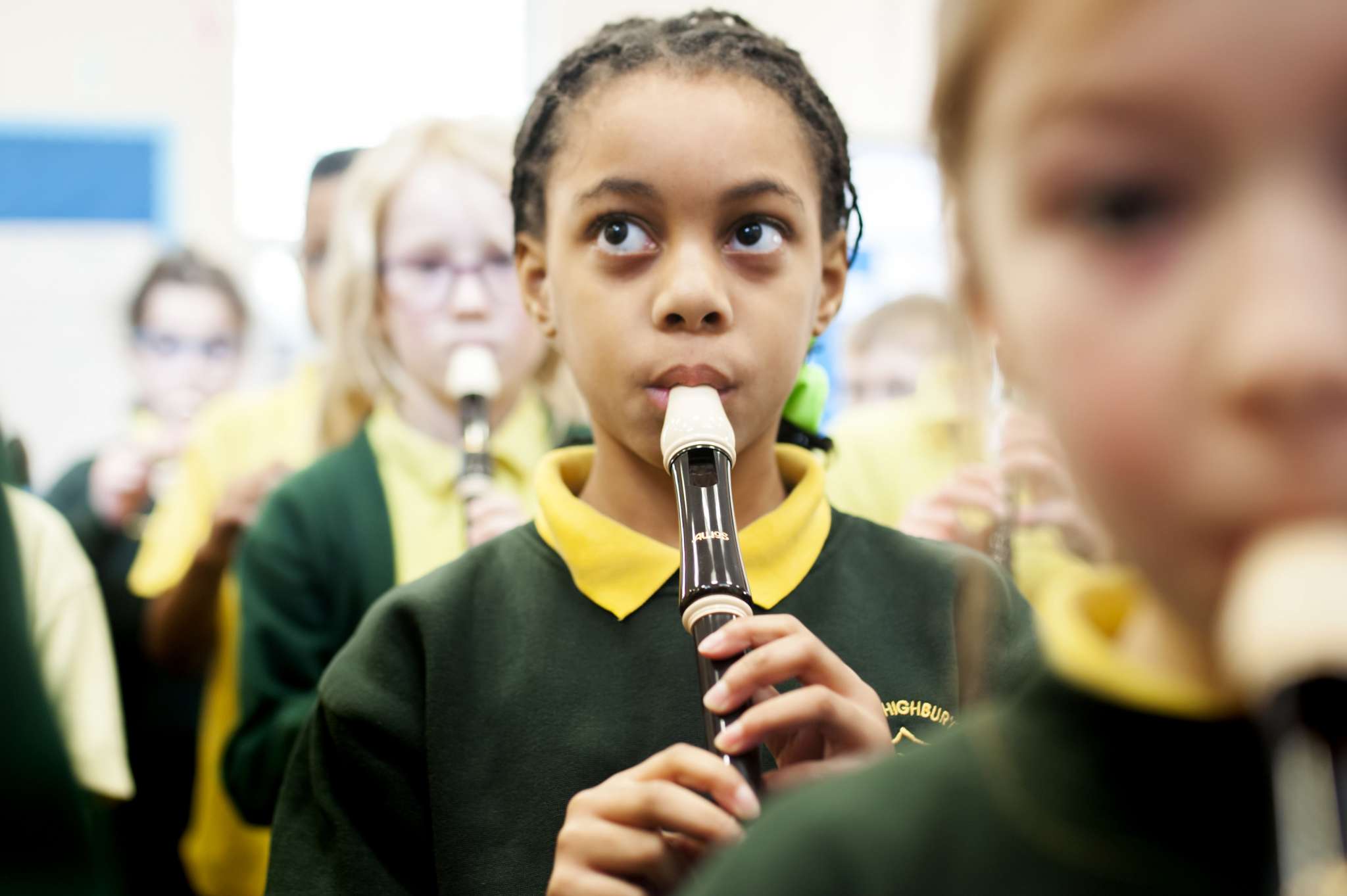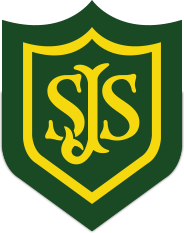We are committed to developing a curiosity for the subject, as well as an understanding and acceptance of the validity and importance of all types of music, and an unbiased respect for the role that music may wish to be expressed in any person’s life. We aim to provide children with the opportunity to progress to the next level of their creative excellence.
Implementation
The music curriculum ensures children sing, listen, play, perform and evaluate. This is embedded in the classroom activities as well as the weekly singing assemblies, various concerts and performances and the learning of instruments. Through the musical programmes Charanga and Jolly Music, teachers are able to produce inclusive lessons for all children to access the musical curriculum in a fun and engaging way, further promoting a love of learning. Teachers deliver music following the Charanga and Jolly Music programme, designed specifically for the teaching of music in primary schools. The lessons are planned in sequences to provide children with the opportunities to review, remember, deepen and apply their understanding. The elements of music are taught in classroom lessons so that children are able to use some of the language of music to dissect it, and understand how it is made, played, appreciated and analysed. In the classroom, children also learn how to play musical instruments. In Years 2 and 3 children begin to learn to play the recorder and a variety of percussion instruments. In Year 4 children move on to transfer their skills to playing the flute. In Years 5 and 6, children move onto playing a larger wind instrument, the trumpet. Playing various instruments enables children to use a range of methods to create notes, as well as how to read basic music notation. They also learn how to compose, focusing on different dimensions of music, which in turn feeds their understanding when listening, playing, or analysing music. Composing or performing using body percussion and vocal sounds is also part of the curriculum, which develops the understanding of musical elements without the added complexity of an instrument. Having the exposure to a number of musical instruments, gives them an opportunity to decide at the end of Key Stage 2, which they would prefer to develop their skills further in. Throughout the school year, we also offer a wide range of music lessons as after school provision, such as guitar and ukulele lessons.
Impact
Music enables children to develop an understanding of culture and history, both in relation to children individually, as well as ethnicities from across the world. Children are able to enjoy music in as many ways as they choose – either as listener, creator or performer. Children have the opportunity to discuss and share their own thoughts, opinions and ideas, acknowledging and respecting that these may vary and that this is positive. They can dissect music and comprehend its parts. They can sing and feel a pulse. At St John’s Highbury Vale CE Primary School children are provided with opportunities beyond the National Curriculum to further and support their understanding. These include having visitors with a musical talent, visiting concerts and school productions and taking part in the Young Voices choir annually. External interests and talents are also encouraged and showcased in class and assembly, ensuring that everyone is challenged regardless of previous musical experience. Children have an understanding of how to further develop skills less known to them, should they ever develop an interest in their lives.
Music Curriculum Map Jan 2022


